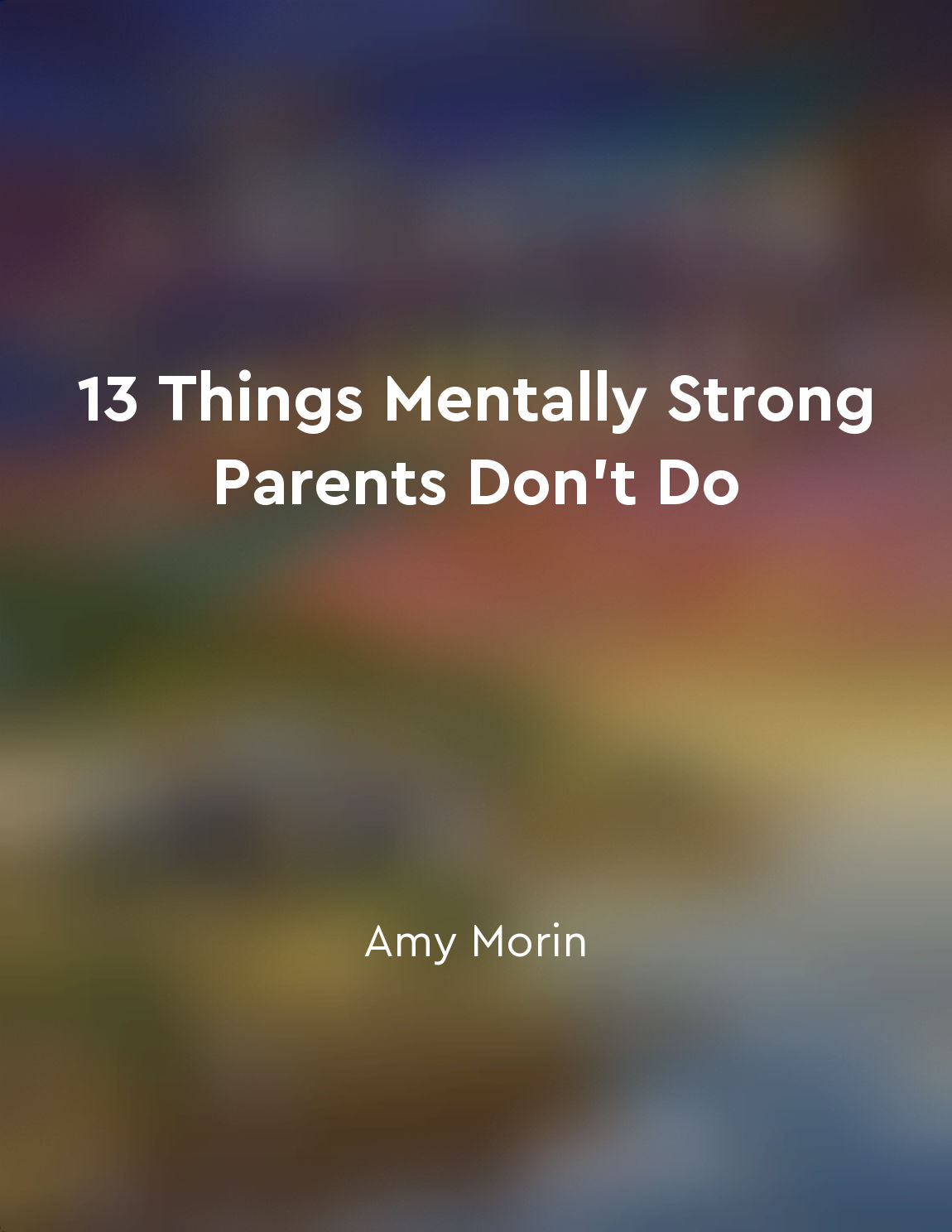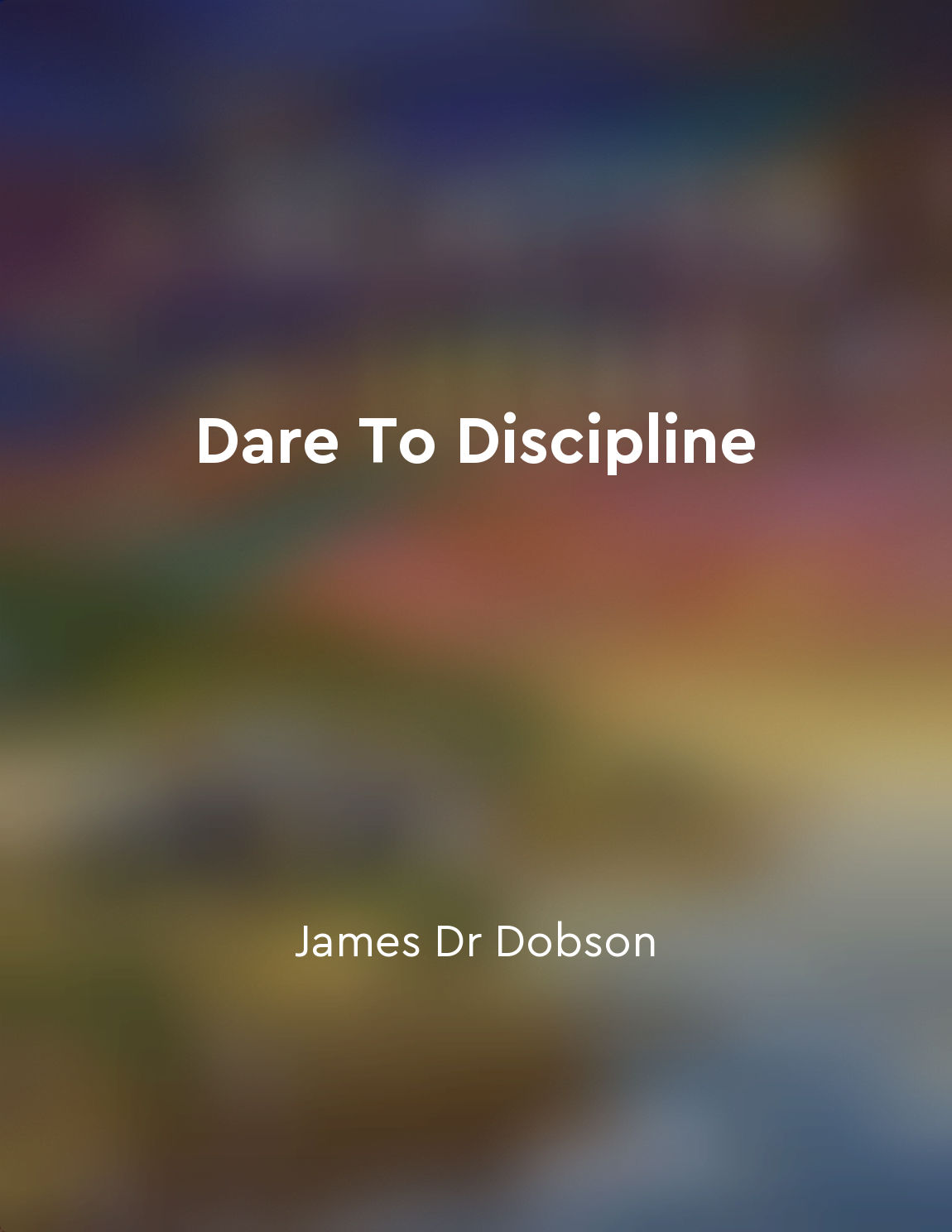Discipline is about teaching, not punishing from "summary" of No-Drama Discipline by Daniel J. Siegel,Tina Payne Bryson
When we think about discipline, we often associate it with punishment. But what if we shifted our perspective and viewed discipline as an opportunity for teaching and learning? Discipline is not about making children suffer for their mistakes; it's about guiding them towards understanding and growth. When we approach discipline from a teaching standpoint, we can help children develop self-regulation skills and learn from their experiences. Punishment may stop a behavior temporarily, but it doesn't address the underlying causes or teach children how to make better choices in the future. By teaching children in moments of discipline, we can help them develop important skills such as empathy, problem-solving, and emotional regulation. This approach requires us to remain calm and empathetic, even when children are misbehaving. Instead of reacting with anger or punishment, we can use discipline as an opportunity to connect with our children, understand their perspective, and teach them how to navigate challenging situations. When children feel understood and supported, they are more likely to learn from their mistakes and make positive changes in their behavior. It's important to remember that teaching through discipline is a process that takes time and patience. Children may not always respond positively at first, and it can be tempting to resort to punishment when they continue to misbehave. However, by consistently approaching discipline as a teaching opportunity, we can help children develop important life skills and strengthen our relationship with them. The goal is not to control children through fear or punishment, but to empower them to make better choices and learn from their experiences. In the end, discipline is about so much more than just correcting behavior – it's about teaching children how to navigate the world around them, develop empathy and self-control, and build strong relationships with others. By viewing discipline as a form of teaching, we can help our children grow and thrive in a supportive and loving environment.Similar Posts

Do Not Neglect Your Own Mental Health
As a parent, it's easy to put your own mental health on the back burner. You might think that taking care of yourself is selfis...

Offer choices to empower children
When children are given choices, they feel empowered. They feel like they have some control over their lives and are more likel...

Practice positive reinforcement to reinforce good behavior
Positive reinforcement is a powerful tool in guiding children towards good behavior. When we focus on acknowledging and rewardi...

Discipline helps children understand right from wrong
Discipline plays a crucial role in shaping a child's understanding of right and wrong. When parents establish clear boundaries ...
